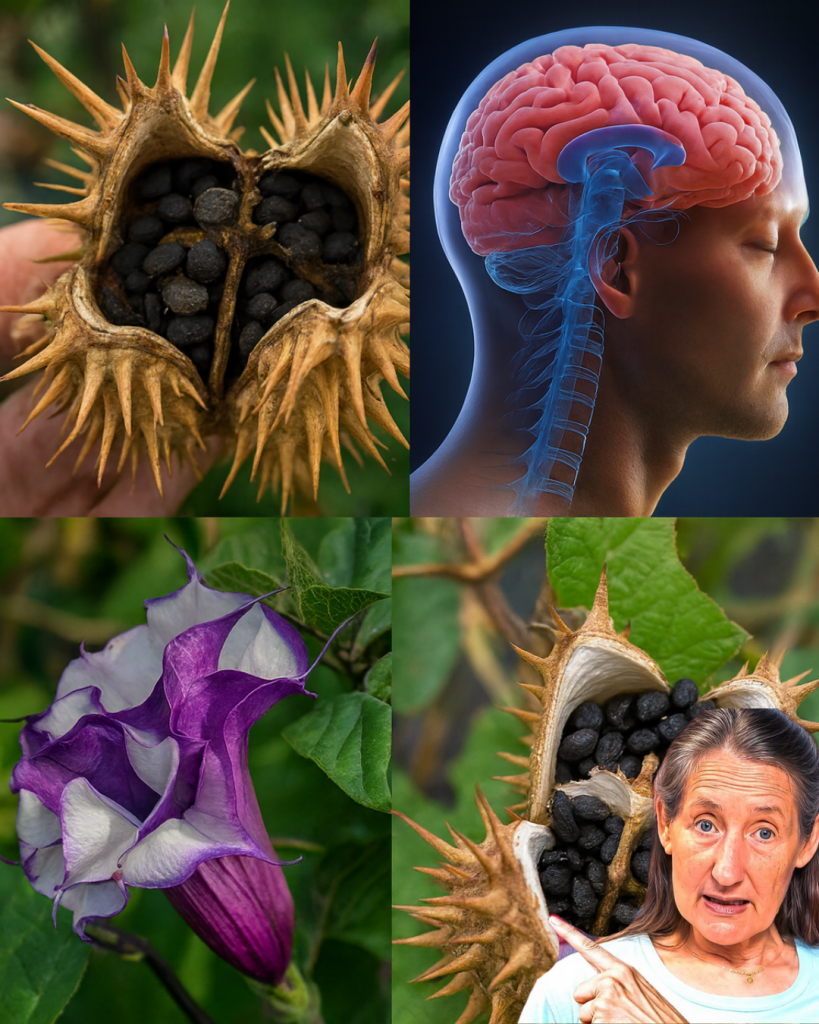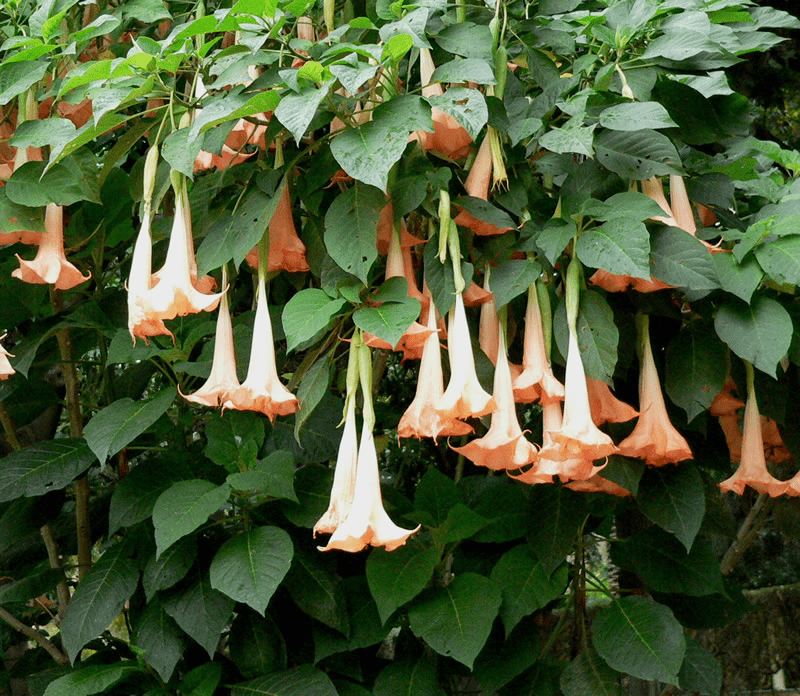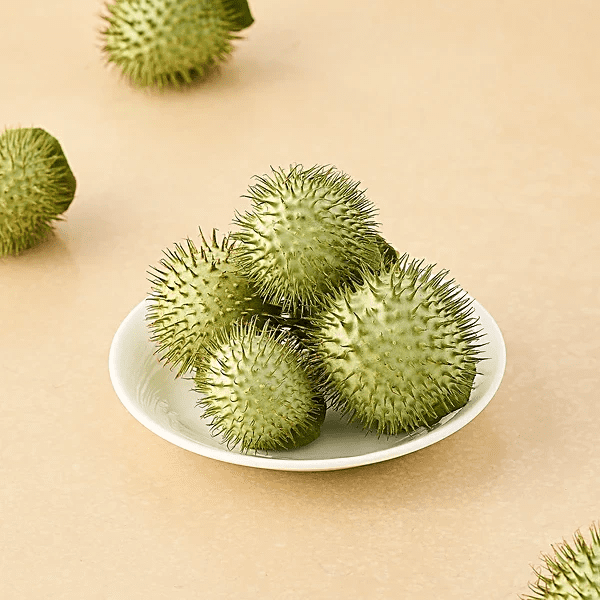Imagine stumbling across a plant with delicate, trumpet-shaped flowers glowing under the moonlight, whispering promises of ancient healing and mystical visions. Datura stramonium, known as jimsonweed or devil’s trumpet, is exactly that—a botanical enigma that has captivated healers, shamans, and thrill-seekers for centuries. But beneath its alluring facade lies a dangerous truth: this plant has claimed lives, with over 2,700 poisoning deaths recorded in India between 1950 and 1965. Packed with potent compounds like atropine and scopolamine, Datura offers remarkable medicinal potential but demands respect for its lethal risks. Is it a gift from nature or a trap waiting to ensnare the unwary? Dive into this exploration of Datura’s surprising benefits and critical dangers to uncover whether it’s a remedy worth pursuing or a peril best avoided. Let’s unravel the mystery together, with practical insights to keep you informed and safe.

What Is Datura Stramonium?
Datura stramonium is a wild, annual plant from the Solanaceae family, thriving in temperate and tropical regions worldwide, from North American fields to Asian roadsides. Its jagged leaves, spiky seed pods (nicknamed thorn apples), and fragrant flowers make it unmistakable. The plant’s power comes from its tropane alkaloids—chemicals like atropine, scopolamine, and hyoscyamine that deliver both therapeutic effects and extreme toxicity.
For centuries, Datura has woven itself into the fabric of human history. Ancient Ayurvedic texts praise its sedative properties, Native American shamans used it in sacred rituals, and medieval Europeans sought its hallucinogenic effects. Yet, its unpredictable potency has also made it infamous, with stories of accidental poisonings and perilous misadventures. Understanding this plant’s dual nature is the first step to navigating its potential safely.
🌬️ 5 Astonishing Benefits of Datura Stramonium
Despite its fearsome reputation, Datura stramonium holds remarkable pharmacological promise when used under strict professional guidance. Here are five science-backed benefits that reveal why this plant has fascinated healers for generations.
1. Relief for Asthma and Breathing Difficulties
Datura’s alkaloids, particularly scopolamine, act as powerful bronchodilators, relaxing airway muscles to ease breathing. In the 19th century, physicians prescribed smoking dried Datura leaves for asthma relief, a practice rooted in its ability to open constricted airways. Modern research has validated these effects, showing that controlled doses can mimic the action of today’s asthma inhalers. However, its risks have led to safer alternatives taking precedence.
**ქSafe use tip: Only medical professionals should administer Datura for respiratory purposes, as incorrect dosing can lead to severe complications.
2. Pain Relief and Muscle Relaxation
The plant’s hyoscyamine content offers potent analgesic and antispasmodic properties, making it a traditional remedy for joint pain, muscle spasms, and menstrual cramps. Studies have confirmed its ability to reduce pain and relax muscles, particularly in topical applications like pastes or ointments. These properties处罚
Datura Stramonium’s potential for pain relief is compelling, but its narrow therapeutic window demands expert oversight.
3. Antimicrobial and Anti-inflammatory Power
Datura’s leaves and seeds contain compounds with impressive antimicrobial and anti-inflammatory effects. Research has shown that ethanolic extracts can combat pathogens like Staphylococcus aureus and Pseudomonas aeruginosa, offering potential for fighting infections. Traditional practices in India and Ethiopia have long used Datura to reduce swelling and treat rheumatism, leveraging its natural anti-inflammatory properties.
🌿Safe use tip: Never attempt to use Datura extracts without professional guidance, as their potency can cause severe side effects.
4. Healing Skin Conditions
In traditional medicine, Datura’s antimicrobial and anti-inflammatory properties have been harnessed to treat wounds, ulcers, and skin infections. For instance, a blend of Datura leaf juice and sesame oil has been used to soothe earaches and boils. These applications can promote healing when carefully prepared, but the risk of alkaloid absorption through the skin remains a concern.
🩺Safe use tip: Topical use should only be done under professional supervision to prevent toxic exposure.
5. Sedative and Sleep Support
Datura’s anticholinergic alkaloids, particularly scopolamine, have sedative effects that can reduce anxiety and promote sleep. Studies on related Datura species have shown that low doses of seed extracts can shorten sleep latency, offering potential as a sleep aid. However, its unpredictable potency makes it a risky choice compared to safer alternatives like chamomile or melatonin.
😴Safe use tip: Opt for well-studied sleep aids over Datura to avoid dangerous side effects.

| Benefit | Key Compound | Potential Use |
|---|---|---|
| Asthma Relief | Scopolamine | Bronchodilator |
| Pain Relief | Hyoscyamine | Analgesic, antispasmodic |
| Antimicrobial | Alkaloids, flavonoids | Fights bacteria, fungi |
| Skin Healing | Alkaloids | Treats wounds, infections |
| Sedative | Scopolamine | Induces sleep, reduces anxiety |
⚠️ The Deadly Risks of Datura Stramonium
Datura stramonium is not a plant to be trifled with. Its tropane alkaloids can trigger severe anticholinergic syndrome, with symptoms ranging from dry mouth and blurred vision to rapid heartbeat, fever, seizures, and even coma. A documented case involved a young adult who fell into a coma after ingesting Datura seeds, experiencing delirium and life-threatening symptoms. The plant’s toxicity varies by part, season, and individual plant, making safe dosing a near-impossible challenge without specialized knowledge.
Key risks include:
Hallucinations and Delirium: Datura’s hallucinations are vivid and disorienting, often described as nightmarish and lasting up to 72 hours.
Anticholinergic Syndrome: This life-threatening condition can cause severe physiological distress, with a high risk of fatality in overdose cases.
Organ Damage: High doses have been shown to harm the liver, spleen, and brain in animal studies.
Accidental Poisoning: Children are particularly vulnerable, with even small amounts proving lethal.
Drug Interactions: Datura can dangerously interact with medications affecting the heart or nervous system.
The plant’s allure as a medicinal herb is overshadowed by these risks, demanding extreme caution and professional oversight.
🛡️ Safe Use Guidelines: Protecting Yourself
Datura stramonium’s benefits are locked behind a wall of danger, accessible only through strict professional supervision. Here’s how to approach it safely:
Never Self-Treat: Always consult a qualified healthcare provider or herbalist before any use.
Avoid Ingestion: Consuming Datura, whether as tea or seeds, is highly dangerous due to unpredictable alkaloid levels.
Use Protective Gear: Wear gloves when handling the plant to prevent skin absorption of toxins.
Secure Storage: Keep Datura plants or products out of reach of children and pets.
Choose Safer Alternatives: For asthma, pain, or sleep issues, opt for established treatments like inhalers, ibuprofen, or chamomile.
Recognize Poisoning Symptoms: Be vigilant for signs like dry mouth, dilated pupils, confusion, or rapid heartbeat, and seek immediate medical help if they appear.
🚫 Who Should Steer Clear of Datura?
Certain groups face heightened risks from Datura’s toxic effects and should avoid it entirely:
Pregnant or Breastfeeding Women: Alkaloids may harm the fetus or infant.
People with Heart Conditions: Datura can trigger dangerous heart rate changes.
Individuals with Glaucoma: The plant may worsen narrow-angle glaucoma by dilating pupils.
Those with Psychiatric Disorders: Datura can exacerbate psychosis or anxiety.
Children: Even minimal exposure can be fatal, as evidenced by tragic pediatric cases.

😱 A Real-Life Warning: Datura’s Devastating Impact
In 2020, a family in India mistakenly consumed Datura seeds, confusing them with edible spices. Within hours, they suffered hallucinations, confusion, and rapid heartbeats. Fortunately, prompt medical intervention with activated charcoal saved their lives, but their harrowing experience serves as a stark reminder of Datura’s dangers. This incident underscores the need for vigilance, especially in regions where the plant grows wild.
🌱 Exploring Herbal Remedies Safely
Datura stramonium’s mystique lies in its potent blend of healing and harm. While its benefits are intriguing, the risks make it a perilous choice for most. To explore herbal remedies safely:
Research Thoroughly: Choose herbs with well-documented safety profiles.
Consult Experts: Work with doctors or certified herbalists for personalized advice.
Start Small: Test new herbs in low doses under professional supervision.
Monitor Your Body: Stop immediately and seek help if you experience unusual symptoms.
Spread Awareness: Educate others about toxic plants like Datura to prevent accidents.
❓ Frequently Asked Questions About Datura Stramonium
Can Datura stramonium be used safely for medicinal purposes?
Only under strict medical supervision due to its highly toxic alkaloids.
What are the main benefits of Datura stramonium?
It may aid asthma, pain, infections, skin conditions, and sleep, but only in controlled, professional settings.
How can I tell if I’ve been poisoned by Datura?
Look for symptoms like dry mouth, dilated pupils, confusion, rapid heartbeat, or hallucinations, and seek immediate medical attention.
Are there safer alternatives to Datura?
Yes, modern medications and herbs like chamomile, valerian, or ibuprofen offer safer options for similar benefits.
Is Datura legal to use?
Datura is not a controlled substance in most regions, but its use is heavily discouraged due to safety concerns.
Final Thoughts: A Plant of Power and Peril
Datura stramonium is a paradox—a plant with extraordinary medicinal potential wrapped in a cloak of deadly risk. Its ability to relieve asthma, pain, infections, and insomnia is tantalizing, but its toxic alkaloids demand the utmost caution. For most, safer alternatives provide similar benefits without the life-threatening dangers. If you’re drawn to Datura’s historical allure or therapeutic promise, proceed only with expert guidance and prioritize safety above all. Stay curious, stay informed, and stay safe as you explore the fascinating world of herbal remedies.









